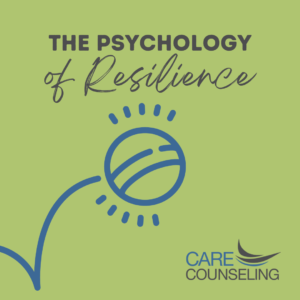Unleashing Inner Strength in the Face of Adversity
 Resilience, the ability to bounce back and thrive in the face of adversity, is a remarkable human quality. It empowers individuals to navigate challenges, overcome obstacles, and emerge stronger and more resourceful. In this blog post, we will dive into the concept of resilience, exploring the factors that contribute to its development in individuals facing adversity. Furthermore, we will delve into practical strategies for cultivating resilience in everyday life, equipping ourselves with invaluable tools to embrace and transcend life’s inevitable challenges.
Resilience, the ability to bounce back and thrive in the face of adversity, is a remarkable human quality. It empowers individuals to navigate challenges, overcome obstacles, and emerge stronger and more resourceful. In this blog post, we will dive into the concept of resilience, exploring the factors that contribute to its development in individuals facing adversity. Furthermore, we will delve into practical strategies for cultivating resilience in everyday life, equipping ourselves with invaluable tools to embrace and transcend life’s inevitable challenges.
Resilience is the capacity to adapt and thrive in the face of adversity, trauma, or significant stress. It is not an inherent trait but a dynamic process that can be cultivated and strengthened. Resilient individuals possess inner resources, skills, and attitudes that enable them to effectively cope with challenges, maintain a positive outlook, and recover from setbacks. Resilience involves the integration of emotional, cognitive, and behavioral factors, empowering individuals to navigate difficulties and find a sense of meaning and purpose even during adversity.
Several factors contribute to the development of resilience in individuals. These include:
- Supportive Relationships: Having nurturing and supportive relationships, whether with family, friends, or mentors, provides a crucial foundation for resilience. Social connections offer emotional support, guidance, and practical assistance during challenging times.
- Positive Belief Systems: Maintaining optimistic beliefs and a growth mindset is essential for resilience. Cultivating a sense of self-efficacy, embracing challenges as opportunities for growth, and holding a positive view of the future can bolster resilience.
- Coping Skills and Adaptability: Developing effective coping strategies, problem-solving skills, and flexibility in the face of change helps individuals navigate adversity with resilience. Adapting to new circumstances, seeking solutions, and finding alternative paths forward are hallmarks of resilient individuals.
Strategies for Cultivating Resilience:
- Cultivate Self-awareness: Developing self-awareness allows individuals to recognize their strengths, limitations, and emotional responses. By understanding one’s emotions and triggers, individuals can proactively manage stress and develop healthier coping mechanisms.
- Foster a Supportive Network: Cultivate meaningful relationships with family, friends, or support groups. Seek out individuals who offer encouragement, empathy, and understanding during difficult times. Building a reliable support network enhances resilience.
- Practice Mindfulness and Self-care: Engaging in mindfulness practices such as meditation, deep breathing exercises, and self-reflection helps individuals build emotional resilience. Prioritize self-care activities that nurture physical, mental, and emotional well-being.
- Reframe Perspectives: Cultivate a growth mindset by reframing setbacks as learning opportunities. Focus on the lessons and potential for personal growth rather than dwelling on the negative aspects of adversity.
- Set Realistic Goals: Establish realistic and achievable goals to maintain a sense of purpose and direction. Break down larger goals into smaller, manageable steps to maintain motivation and a sense of progress.
Resilience is a powerful quality that allows individuals to navigate the challenges of life with strength and adaptability. By understanding the factors that contribute to resilience and adopting practical strategies, we can cultivate resilience in our everyday lives. As we nurture supportive relationships, foster positive beliefs, and develop effective coping skills, we unleash our inner resilience, enabling us to face adversity with courage, optimism, and a steadfast spirit. Embracing resilience as an ongoing journey empowers us to find meaning, grow through challenges, and ultimately thrive in the face of adversity.



























